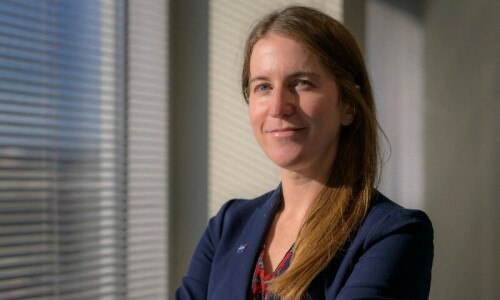FENI: River waters in low-lying Bangladesh are receding after days of deadly floods but 300,000 people are still in emergency shelters requiring aid, disaster officials said on Sunday.
The heavy floods, which killed at least 18 people in Bangladesh, have added to the challenges of a new government that took charge this month after a student-led revolution.
Rescue teams, including joint forces of the army, air force and navy, are helping those forced from their homes and bringing aid to those who have lost everything, disaster management minister Faruk-i-Azam said.
“The flood situation is improving as the flood water started to recede,” the minister said.
More than 307,000 people are in shelters and more than 5.2 million have been affected by the floods, the ministry said.
Floods fuelled anger between Dhaka and New Delhi, with India rejecting blame for deliberately releasing water from an upstream dam
“Now we are working to restore communication in the affected areas so that we can distribute relief food,” Azam said.
“We are also taking steps so that contagious diseases don’t spread.” Ordinary Bangladeshis have been crowdfunding relief efforts.
The floods add to the woes of a nation still reeling from weeks of political turmoil that culminated in the toppling of autocratic leader Sheikh Hasina, who fled to India by helicopter. She was replaced by Nobel Peace Prize laureate Mohammad Yunus, who is heading an interim government that faces the monumental task of charting democratic reforms ahead of expected new elections.
Highways and rail lines were damaged between the capital Dhaka and the main port city of Chittagong, making access to badly flooded districts difficult and disrupting business activity.
Monsoon rains cause widespread destruction yearly but climate change is shifting weather patterns and increasing the number of extreme weather events.
The South Asian nation of 170 million people is crisscrossed by hundreds of rivers and has seen frequent floods in recent decades.
Much of the country is made up of deltas where the Himalayan rivers the Ganges and the Brahmaputra wind towards the sea after coursing through India.
It is among the countries most vulnerable to disasters and climate change, according to the Global Climate Risk Index.
Hard-hit areas include the southeastern regions around Chittagong and Cox’s Bazar, home to around a million Rohingya refugees from neighbouring Myanmar.
Floods across the border in upstream India have also left a trail of destruction, with at least 24 people killed in eastern Tripura state since Monday.
India’s Tripura disaster management authority said the waters were also receding but that more than 100,000 people were still sheltering in some 500 relief camps.
Many of their homes were swamped by the floods, with a total of 1.7 million people affected, it said.
The floods have also fuelled anger between Dhaka and New Delhi, with India’s foreign ministry rejecting accusations it was to blame for the floods and denying it had deliberately released water from an upstream dam.
India was a key supporter of Sheikh Hasina and many Bangladeshis have since been openly critical of their bigger and more powerful neighbour for backing her 15-year rule.
India said its own catchment area had experienced the “heaviest rains of this year” this week, and that the flow of water downstream was due to “automatic releases”.
Published in Dawn, August 26th, 2024















































